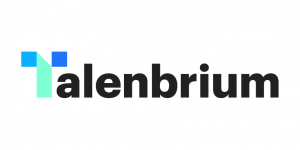Mexico’s Logistics & Supply Chain Tech Talent Engine Poised for Breakthrough Growth: Talenbrium Releases 2025
Talenbrium provides advanced talent-intelligence solutions, enabling organizations to make data-driven decisions
Mexico Top 30 Trending Roles in the Logistics & Supply Chain Tech Industry: Strategic workforce planning, Hiring Trends, In Demand Skillsets, Demand Push, Salary Benchmarking, job demand and supply”
KARLSRUHE, GERMANY, November 11, 2025 /EINPresswire.com/ -- Talenbrium published its highly anticipated research report, “Mexico Top 30 Trending Roles in the Logistics & Supply Chain Tech Industry: Strategic Workforce Planning, Hiring Trends, In-Demand Skillsets, Demand Push, Salary Benchmarking, Job Demand & Supply – 2025 Edition”, examining the dynamic evolution of Mexico’s logistics and supply-chain technology workforce. The report uncovers a compelling talent transformation, identifying critical roles, skillsets, and hiring pressures within the logistics tech ecosystem across Mexico. — Florian Marthaler
Key Findings: Talent Shortages, Emerging Roles & Salary Premiums
Mexico’s logistics & supply chain technology workforce currently stands at approximately 85,000 professionals in 2024 – representing about 12% of the transportation and warehousing sector.
The workforce is expected to expand to 142,000 professionals by 2030, with a compound annual growth rate (CAGR) of 9.1%, significantly outpacing the broader technology sector, which grows around 6.8% annually.
Workforce composition breaks down as follows:
Engineering / Platform specialists ~45% (warehouse management systems, transportation optimization)
Data / AI professionals ~28% (predictive analytics, demand forecasting)
Cyber / Risk Tech experts ~15% (supply-chain security, compliance)
Product / Experience teams ~12% (customer-facing logistics interfaces)
Download Preview: https://www.talenbrium.com/report/argentina-top-trending-roles-in-the-agritech-and-foodTech-industry/download-sample
The supply-demand gap is acute: Although Mexico produces roughly 130,000 STEM graduates annually, only 8–12% (≈10,400-15,600) enter logistics tech roles—creating an estimated talent shortfall of 25,000–35,000 qualified professionals.
Salary benchmarking reveals significant premiums for logistics technology roles:
Median salaries: Supply Chain Systems Analyst ~USD 28,500 (+12% YoY), Logistics Software Developer ~USD 35,200 (+18%), Supply Chain Data Engineer ~USD 42,800 (+22%), SC Technology Manager ~USD 58,600 (+15%)
Mexico City and Monterrey command 20-30% geographic salary premiums, with retention bonuses of 10-15% now common.
Automation and future-oriented roles are reshaping the talent landscape:
Engineering roles show ~35–40% automatable tasks; quality assurance ~55–60%; operations ~40–45%.
Emerging roles through 2030 include:
AI Supply Chain Orchestrator (machine-learning across procurement/warehousing/distribution)
Sustainability Compliance Technologist (environmental/regulatory technology in logistics)
Cross-Border Data Governance Specialist (managing international trade data flows)
Autonomous Logistics Coordinator (human-machine collaboration in automated facilities)
Strategic Implications for Employers & Job Seekers
For Employers:
The report signals urgent strategic workforce planning imperatives for players in Mexico’s logistics & supply chain technology sector:
Reassess job architectures: Traditional role definitions no longer adequately match dynamic skill demands around IoT, analytics, robotics, and automated warehouses.
Emphasize reskilling and internal mobility: With extended vacancy durations of 4-6 months for mid-level and 6-9 months for senior roles, internal talent development and redeployment are critical.
Expand location strategy: While Mexico City remains dominant (~18,500 professionals), markets such as Guadalajara (~11,200 professionals, 14.2% CAGR) and Tijuana (~6,800 professionals, 13.5% CAGR) are gaining traction and may offer competitive hiring advantages.
Offer a compelling value proposition: Salary premiums, flexible-hybrid work arrangements, retention bonuses and growth paths are essential recruitment levers as competition intensifies (particularly from fintech and manufacturing sectors).
For Job Seekers:
Focus on hybrid competencies: The convergence of logistics domain expertise plus technology skills (ERP/WMS, Python, SQL, API integration, analytics) distinguishes top talent.
Embrace emerging fields: Roles in AI-based supply chain orchestration, autonomous logistics systems, sustainability tech and trade data governance offer significant growth potential and salary upside.
Consider geography and bilingual capability: Professionals fluent in English/Spanish and based in major hubs or border cities may command higher compensation and access broader roles.
Mexico’s Strategic Role in Nearshoring & Supply Chain Digitization
The forces of nearshoring, e-commerce expansion, digital trade under the United States–Mexico–Canada Agreement (USMCA), and manufacturing relocation are fuelling rapid growth of logistics tech roles in Mexico.
Government investment also underpins this momentum:
Mexico’s National Digital Strategy allocated USD 2.1 billion through 2024 for digital and automation initiatives, with logistics technology as a key focus.
Private sector capital expenditures in logistics technology reached USD 4.8 billion annually, highlighting strong confidence in supply chain modernization.
These macro-trends underscore Mexico’s pivotal role as a talent hub for next-generation supply chain technology in North America.
About the Report
The Mexico Top 30 Trending Roles in the Logistics & Supply Chain Tech Industry – 2025 Edition offers a comprehensive and forward-looking workforce intelligence tool spanning:
30 key role-types across engineering, data/AI, cyber/risk, product and operations
Regional workforce distribution, salary benchmarking, demand-supply analysis, automation exposure and talent migration flows
A strategic horizon to 2030, with insight into emerging skill-clusters and role architectures in a rapidly digitizing logistics environment
Why This Matters
As supply chains become smarter, faster and more automated, the talent dimension is the differentiator. Organizations investing in logistics and supply chain technology cannot simply outsource or commodity-hire; they must identify, develop and retain professionals with a blend of supply-chain domain knowledge and advanced technology acumen.
For Mexico, the trajectory is clear: from a manufacturing and trade base to a digital-logistics technology hub. The window for talent optimization is open—but the gap between supply and demand is real and widening.
About Talenbrium
Talenbrium provides advanced talent-intelligence solutions, enabling organizations to make data-driven decisions in workforce planning, hiring strategy and skills development. With a focus on global talent markets, Talenbrium bridges insights across geographies, industries and role types to support transformative talent strategies.
Florian Marthaler
Talenbrium
+1 734-418-0728
email us here
Legal Disclaimer:
EIN Presswire provides this news content "as is" without warranty of any kind. We do not accept any responsibility or liability for the accuracy, content, images, videos, licenses, completeness, legality, or reliability of the information contained in this article. If you have any complaints or copyright issues related to this article, kindly contact the author above.

